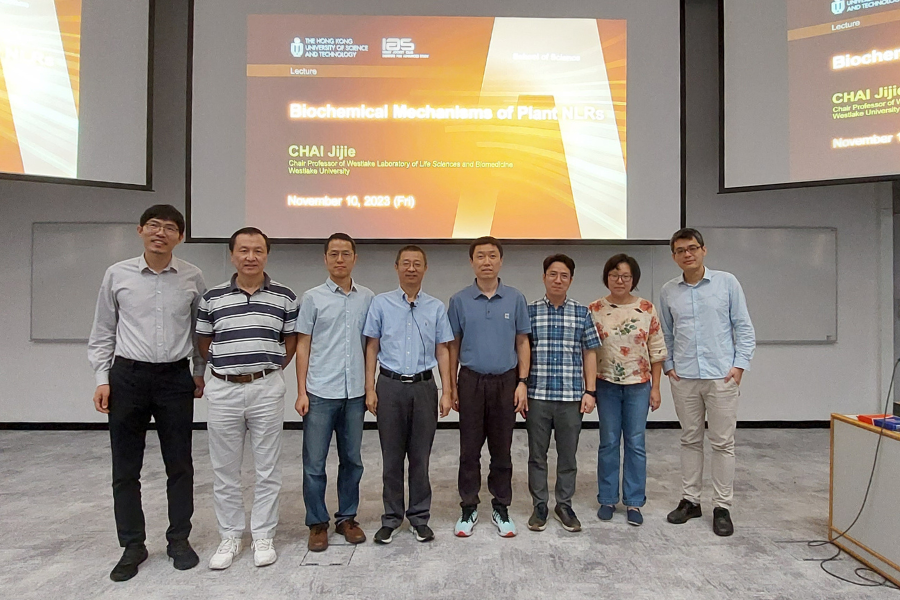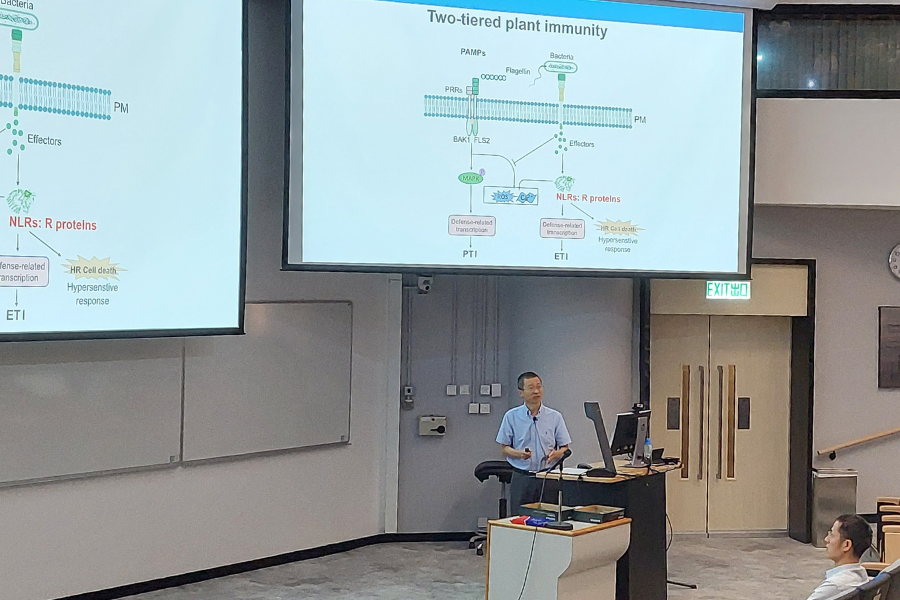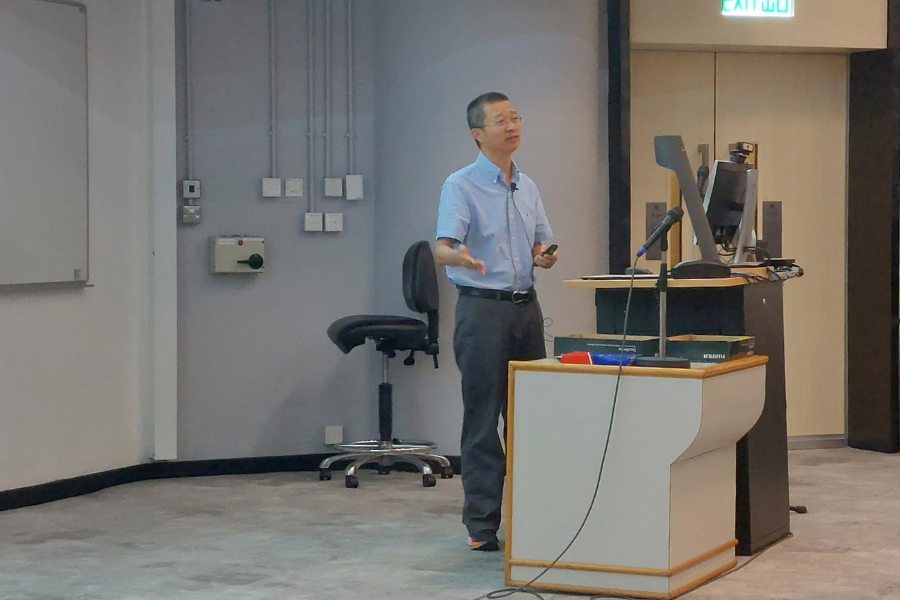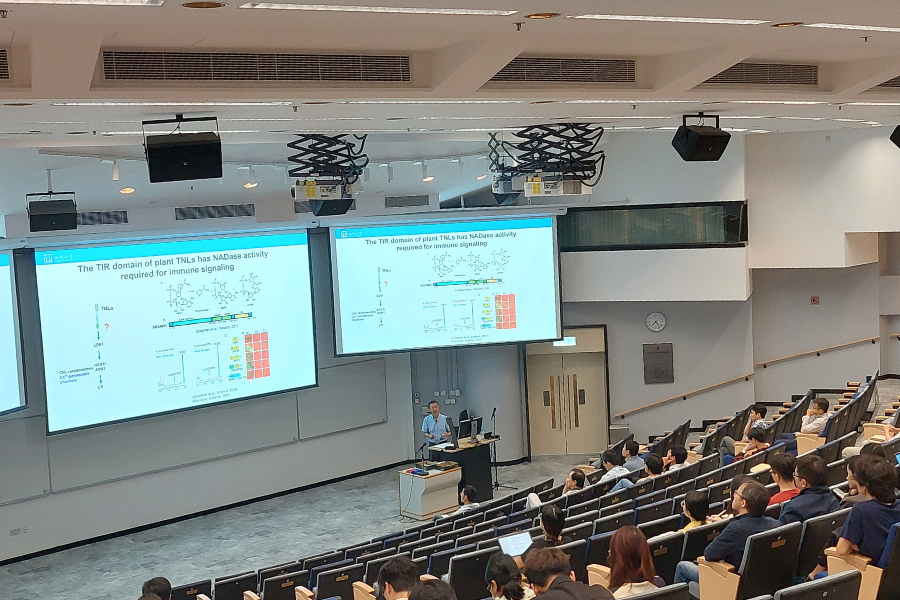Biochemical Mechanisms of Plant NLRs
Abstract
Plant nucleotide binding and leucine-rich repeat (NLR) receptors mediate specific recognition of pathogen effectors to trigger defense responses against invading pathogens. NLRs, largely comprised of coiled coli NLRs (CNLs) and toll-interleukin 1 receptor NLRs (TNLs), have a central role in plant immunity. Signaling mechanisms of plant NLRs have remained elusive until recently. Direct or indirect recognition of pathogen effectors induces oligomerization of plant NLRs, forming large protein complexes termed resistosomes. CNL resistosomes function as calcium-permeable channels to initiate NLR-mediated immunity. The channel activity of CNLs is evolutionarily conserved. By contrast, TNL resistosomes are NADase holoenzymes that catalyze production of nucleotide-derived small molecules. Structural and biochemical evidence indicates that these small-molecules act as second messengers to activate assembly and channel activity of resistosomes of helper NLRs, a subgroup of the CNL family. The speaker will present evidence of how plant NLRs assemble resistosomes in response to pathogen effectors and how resistosomes converge on calcium signals.
About the Speaker
Prof. CHAI Jijie completed his PhD study in Peking Union Medical College in 1997 and conducted his postdoctoral research in Princeton University from 1999 to 2004. He joined National Institute Biological Sciences (NIBS) in 2004 to establish an independent laboratory there. After his promotion from an assistance to an associate investigator in 2009, he moved to Tsinghua University. In 2017, he made a second move to join University of Cologne in Germany as an Alexander von Humboldt Professor/W3 Professor. In 2023, he relocated to Westlake University as a chair professor.
Prof. Chai is a pioneer in the plant immune response and has been engaged In the structural and mechanistic of plant immune receptors for a long time. He has published more than 100 papers, including 28 in top journals like Cell, Nature, and Science. In the plant innate immunity field, Prof. Chai made many fundamental contributions: he coined the concept “resistosome”, discovered a class of second messengers that regulating plant innate immunity, and unravel the underlying molecular mechanism by determining a series of high-resolution structures. His research has filled an existing gap in the plant immune system and shed lights on molecular mechanism of plant response to pathogen attack.
Prof. Chai received plenty of prestigious awards, including Max Planck Fellow, Alexander von Humboldt Professional Award, The 2020 CAS Outstanding Scientific and Technological Achievement Award, Top Ten Progresses in Life Sciences in China (2019), Second Prize of National Natural Science (2017), National Outstanding Youth Award (2011), and so on. In addition to making great achievements in research, Prof. Chai is an excellent mentor by supervising more than 50 students and postdocs, including those who have become independent faculties in top universities like USTC, SCU, SJTC.
For Attendees' Attention
Seating is on a first come, first served basis.






